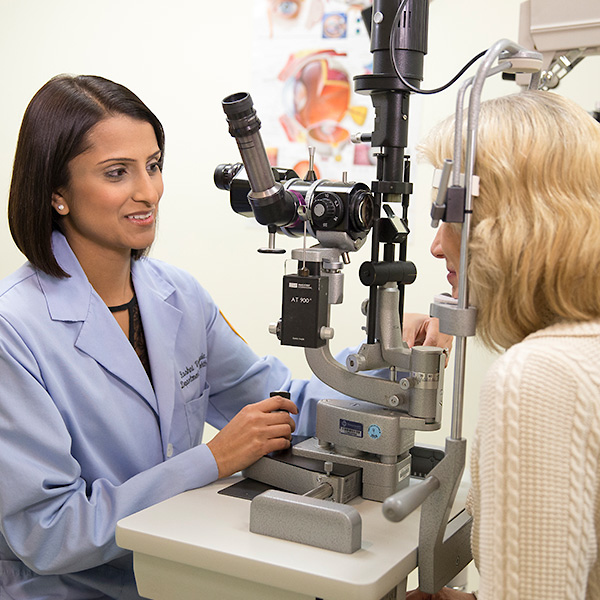Astigmatism
Overview and Facts about Astigmatism
Astigmatism is a common ocular condition characterized by an irregularly shaped or football-shaped cornea or curved eye lens.
Your cornea covers your iris and pupil and works with your eye lens to refract light that enters your eye. When light enters your cornea, your cornea helps focus the light precisely on your retina, toward the back of your eye. Most people have subtle forms of astigmatism. It is a hereditary condition that can affect both adults and children.
Signs and Symptoms of Astigmatism
Astigmatism symptoms vary with the severity and cause of the astigmatism. Some individuals with astigmatism may have no symptoms or very mild symptoms. Symptoms can also increase or decrease over time, as the anatomies of the cornea and eye lens change with age.
When symptoms are present, they commonly include:
- Blurred or decreased vision
- Myopia (nearsightedness)
- Hyperopia (farsightedness)
- Eye strain or discomfort
- Squinting
- Difficulty seeing or navigating in the dark or at night
Causes and Risk Factors of Astigmatism
Astigmatism symptoms occur because of errors in light refraction, or the way the cornea bends light to the retina. When the cornea is round and the eye lens is straight, light refraction errors and astigmatism symptoms are unlikely to occur.
However, if the cornea takes a more irregular football shape and the eye lens is curved, then astigmatism is likely present. Astigmatism may also be a sign of underlying medical conditions such as keratoconus.
Tests and Diagnosis of Astigmatism
A comprehensive eye exam is necessary for diagnosing astigmatism. By performing a comprehensive eye exam, an ophthalmologist/optometrist can determine whether the astigmatism is present because of an irregularly shaped cornea or curved eye lens.
An eye exam to diagnose astigmatism can be done for patients at any age. Astigmatism can also be discovered during a comprehensive dilated eye exam, during which the doctor dilates the pupil using special eye drops that allow them to see more clearly into the eye.
Treatment and Care for Astigmatism
Poor vision due to astigmatism is correctable with eyeglasses, contacts or laser/refractive vision correction. Individuals with astigmatism might need special contact lenses, such as rigid gas-permeable contact lenses, as standard soft contact lenses might not fit comfortably due to the irregularly shaped cornea.

Request an Appointment
Whether you are seeking routine eye care or have a specific vision issue, our team treats a wide range of eye diseases and conditions, including cataracts, glaucoma, macular degeneration and strabismus. Schedule an appointment today.
Schedule a Telehealth Appointment
